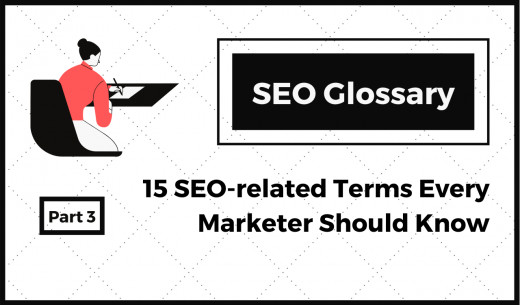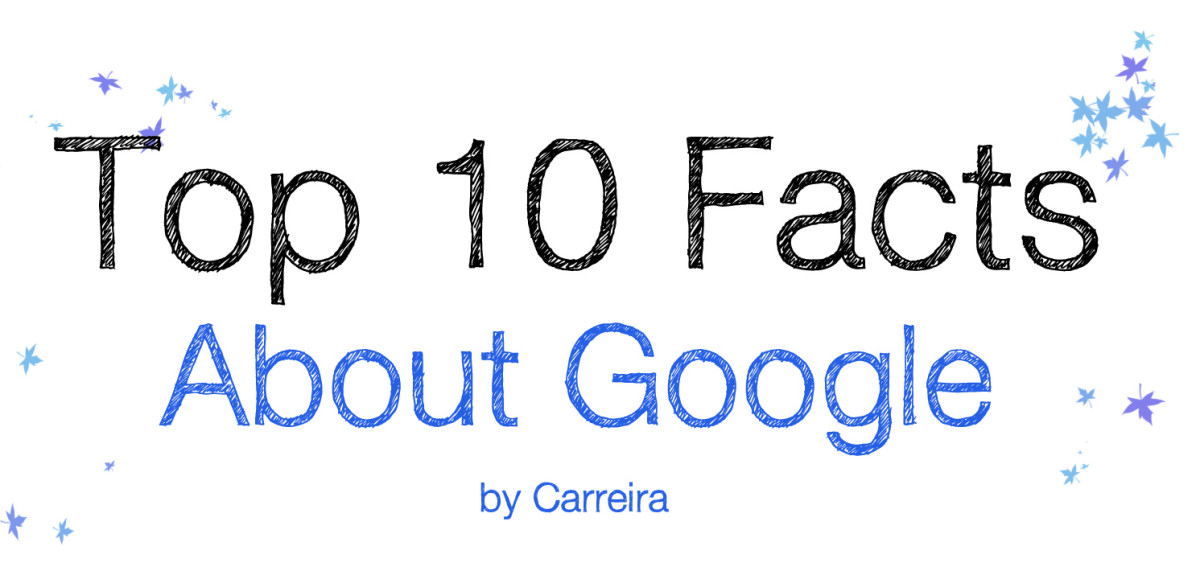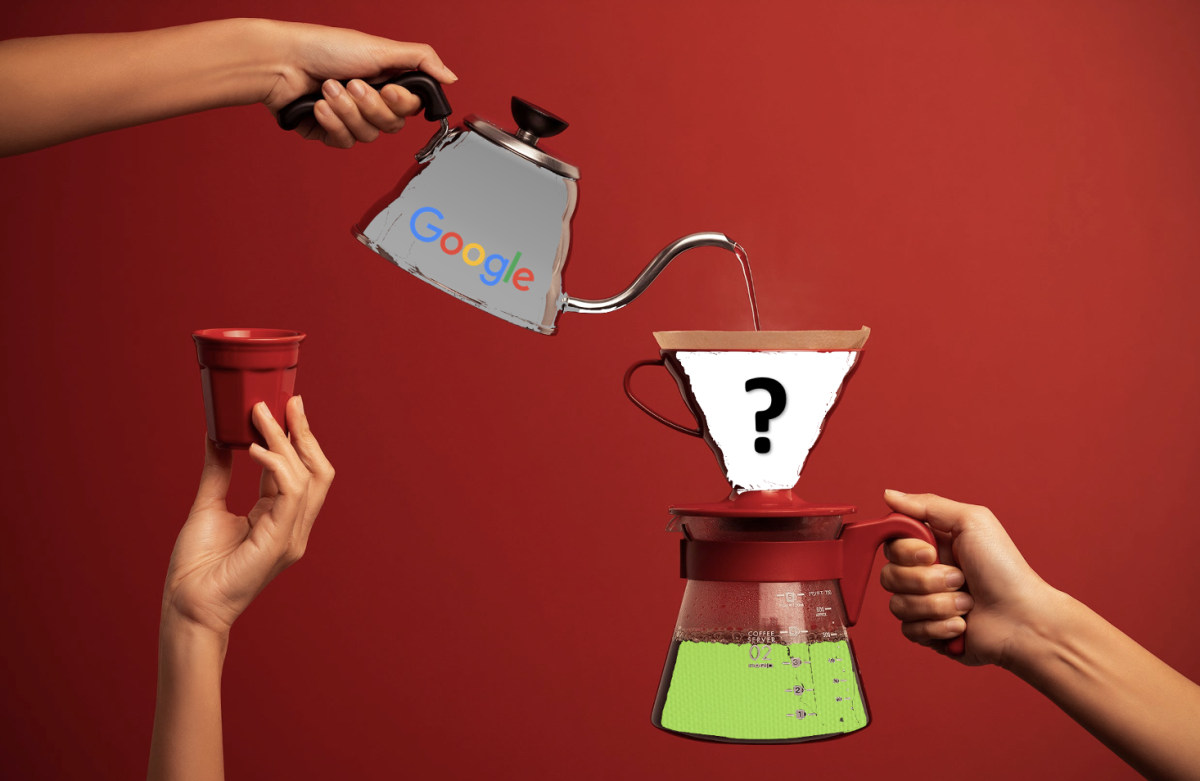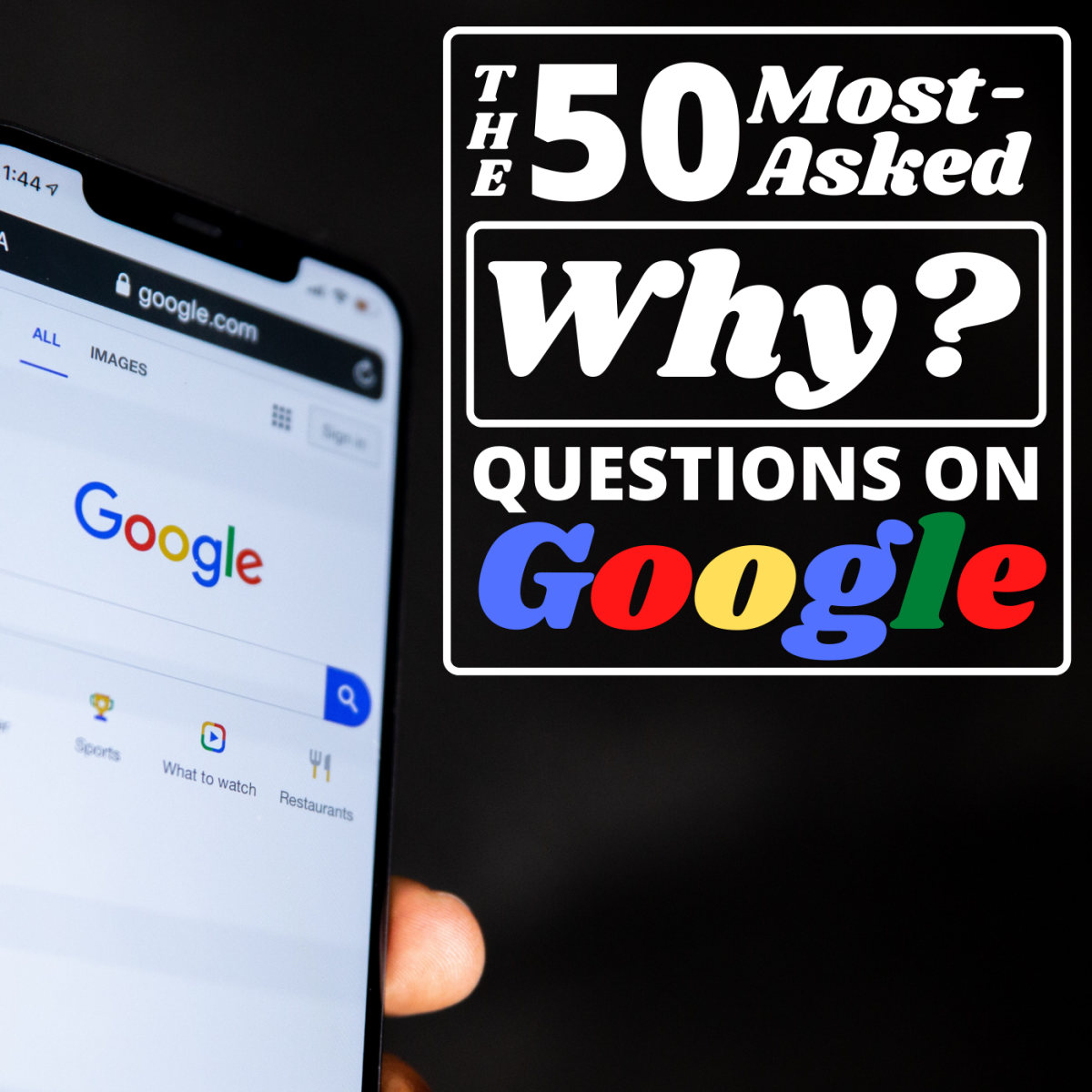- HubPages»
- Technology»
- Internet & the Web»
- Search Engines
SEO Glossary: SEO-related Terms Every Marketer Should Know (Part 3)
Introduction
So, this is the final part of the series where I have discussed some of the most common and atypical SEO and digital marketing-related terms. If you're passionate about internet marketing or want to start your career in the SEO industry, then I believe this post will be useful for you.
These are just some of the terms you should know if you want to become a good online writer or digital marketer. SEO and online marketing are currently at a boom right as most of the businesses are going online.

The SEO industry is an industry that is growing each day. Today, thousands of graduates, IT professionals, and people from other professions are now becoming marketing consultants. It's because of the abundant opportunities; people from all sectors are trying their hands in digital marketing.
Whether you're an experienced or naïve marketing consultant, you should be aware of these terms. So, without any further ado, let's discuss about these terms one by one below:
Do you wish to become a digital marketing expert?
SEO Content and Digital Marketing Terms You Can Learn Here
Keyword Cannibalization
| Keyword density
| Keyword Research
|
Keyword Stuffing
| Knowledge Panel
| Latent Semantic Indexing (LSI)
|
Long-tail Keywords
| Meta Description
| Meta Keywords
|
Off-Page SEO
| On-Page SEO
| Organic Search
|
Pay-per-click (PPC)
| Search Engine Marketing (SEM)
| Title Tag
|
User-generated content (UGC)
| Contextual Link
|
Various SEO and digital marketing terms
17 SEO Content and Digital Marketing Terms and Their Meanings You Should Know
#1. Keyword cannibalization: ‘Cannibalization’ means a decrease in the sale of a company due to the launch of two similar products. So, in this way, keyword cannibalization can be defined as a condition when several blog posts on your website cover similar topics or subjects.
When you publish various articles on the same topic, you’re competing with yourself for better Google rankings. In this condition, Google becomes confused as to which article to give more priority. And, as a result, it ranks both of them lower.
Keyword cannibalization is detrimental for SEO; therefore, you should always avoid it by focusing on different keywords for similar articles.
#2. Keyword density: Keyword density is the percentage of the number of times keywords appear on a piece of content by the total number of words on the page.
For instance, if you’re writing an article of 1,000 words, and inserting keywords 15 times, then the keyword density will be 1.5-percent.
The formula to calculate keyword density is (Number of total keywords/total number of words)*100.
#3. Keyword research: Keyword research is one of the important practices in SEO when it comes to writing content. It is the process in which popular search terms that people type in search engines to find particular information is researched.
Content writers and SEO experts do this to strategically use it in the content to rank higher in a search engine results page (SERP).
#4. Keyword stuffing: Some people try to manipulate their site’s ranking in Google search results by stuffing keywords in their content. They do this to gain organic traffic through search results. This black hat SEO practice is what called keyword stuffing.
#5. Knowledge Panel: Knowledge Panel is a type of rich results that is visible in the search results page. It is an automated generated special box that includes quick information on places, people, and other things on the internet.
All the relevant information for a search query from various sources are compiled and shown here. It usually appears on the right side of your computer on the results page.
#6. Latent Semantic Indexing (LSI): It is the mathematical concept that search engines like Google uses to determine how some phrases and content are means the same, even with the usage of synonyms or keywords.
Using the LSI keywords in your content help you rank better in the related search results.
You can create LSI keywords by using Google Autocomplete, or any other free or paid tools.
#7. Long-tail keyword: Long-tail keywords are those that consist of at least four or more words. Using the right long-tail keywords increases the visibility of your content. And this will bring traffic to your site or web page.
A simple example of a long-tail keyword on ‘weight loss’ can be ’10 Best Ways to Reduce your Weight in Two Weeks.’
#8. Meta description: Every blog post on a website can have a summary that describes what the post is all about. Although there are tools available to write this summary, search engines like Google will draw out relevant summary if you don’t write one. This short snippet or summary is called a meta description.
It is about 155 characters long and appears as a tag in your page’s HTML code. While writing a meta description for your article, make sure it is relevant and matches the content on the page. Also, try to include keywords and make it unique.
#9. Meta keywords: These are the keywords that tell search engine crawlers as to which keywords are important to the content on a particular web page. They are a type of meta tag that is used in the HTML code of a web page.
#10. Off-page SEO: As the name suggests, off-page SEO is the set of practices that you and others do outside your website to increase the search engine rankings. It is way more than just the link building.
Everything that you do ‘off-page’, such as building links, promoting on social media or any other practice comes under the off-page SEO category.

#11. On-page SEO: It includes the set of techniques of optimizing the content and web pages to increase the search engine rankings. When you optimize different elements on your website, such as headings, keywords, internal linking, navigation, etc. you are doing on-page SEO.
#12. Organic search: When a user enters a term or set of several words to find out any particular information on a search engine like Google, it is called an organic search. They appear in the search engine results page (SERP) in the form of paginated lists below the advertisements.
#13. Pay-per-click (PPC): Today, pay-per-click, short for PPC, has become one of the most popular forms of internet marketing advertisement solutions. In this model, advertisers pay a fee to search engines for their ads each time they are clicked by a user.
Unlike organic traffic, the main aim of PPC is to bring paid traffic on a web page or website through various campaigns.
Every search engines have their advertising programs.
#14. Search Engine Marketing (SEM): It is the digital marketing strategy that is used to bring in more traffic to a website or web page by paid search advertising. It is considered one of the fastest modes of driving traffic to your website. However, you should not only rely on SEM for traffic.
#15. Title tag: A title tag is an element in the form of HTML that tells search engines about the title of a web page. They should have relevant keywords or phrases on the web page.
If you don’t specify the title tag or don’t seem relevant, search engines will choose a different title in search results. They are displayed on SERP and are vital for social sharing, usability, and overall SEO.
#16. User-Generated Content (UGC): When you create any kind of unpaid content for yourself or others, it is called user-generated content (UGC). The content can range from blog posts, videos, social media posts, to infographics.
#17. Contextual link: Contextual links are part of the internal linking strategy for your website. As you may now know, search engine crawlers travel through links. So, inserting the relevant links on your web page to the related pages increases the value of your website.
The more users and search engines will spend time on your website, it more valuable it becomes.
Contextual links are those internal links that take a user from the current blog post to other interesting posts on your website.

SEO and Digital Marketing Quiz
view quiz statisticsAre you also wanted to become a digital marketer? Do you also want to become an expert in SEO? Well, with your continued dedication and hard work, you can achieve your target.
So, when thinking of starting your career in the SEO market, you must know the meanings of some of these basic terms. These are related to SEO, digital marketing, content writing, and everything in between.
Unless and until you won't make your base strong, you can not become an expert in that field.
Final Words
With this, we came to the end of part 3 as well as this series. As you may have noticed, this article consists of more on-page SEO terms and terms related to the content. So, if you’re an online writer or want to become one, this might help you to understand various content-related SEO terms. Writing SEO-friendly content is essential for every website, big or small.
If you have any confusion regarding the above terms or want me to describe more SEO concepts, please do let me know in the comments section below. Finally, stay tuned for more such articles on technology and digital marketing.
Also, read parts 1 and 2 of this series to learn more SEO-related terms.
In total, I've discussed 48 such terms including parts 1, 2, and 3. So, you can learn and understand close to fifty SEO and digital marketing-related terms to up your knowledge.
Share this post with your friends who are just starting their marketing career or who are passionate about the SEO industry.
This content is accurate and true to the best of the author’s knowledge and is not meant to substitute for formal and individualized advice from a qualified professional.
© 2020 Nikhil Sharma








